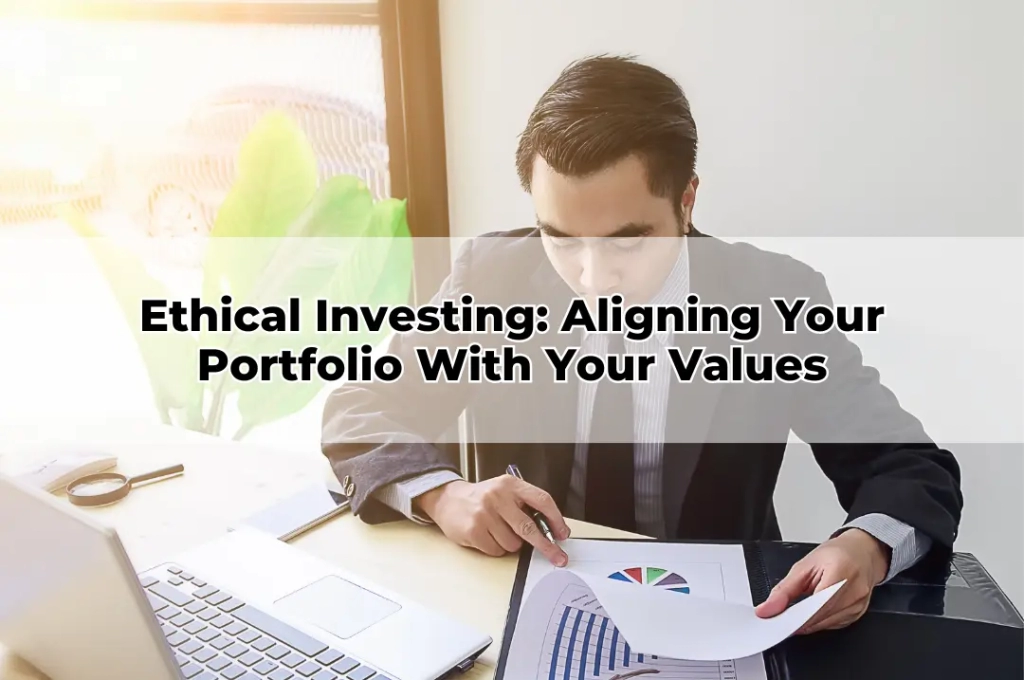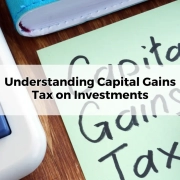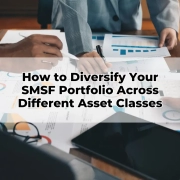Ethical Investing: Aligning Your Portfolio With Your Values
Table of Contents
ToggleEthical investing has surged in popularity as investors seek to align their financial decisions with their personal values. Whether it’s environmental sustainability, social responsibility, or corporate governance, investors are demanding more than just returns—they want their portfolios to reflect their principles. This shift in mindset has driven growth in ethical investment products and strategies, making it a key consideration for those seeking financial advice.
What is Ethical Investing?
Ethical investing, also known as socially responsible investing (SRI) or environmental, social, and governance (ESG) investing, is the practice of selecting investments based on ethical principles. It involves screening companies and assets to ensure they align with specific moral, social, or environmental criteria. Ethical investing is about ensuring your wealth contributes to positive change while still achieving financial security.
Why Ethical Investing Matters
Beyond personal values, ethical investing plays a role in shaping corporate behaviour and driving sustainability. Investors who prioritise ethical investments send a strong message to companies that profit should not come at the expense of social or environmental integrity. It also fosters long-term sustainability in financial markets, reducing risks associated with unethical business practices.
Key Approaches to Ethical Investing
Investors can take various approaches to ethical investing, including:
- Negative Screening: Excluding companies involved in activities such as tobacco, gambling, or fossil fuels.
- Positive Screening: Selecting companies that excel in ESG factors, such as renewable energy firms or those with strong diversity policies.
- Impact Investing: Directing capital towards businesses that generate measurable positive social or environmental impact.
- Thematic Investing: Focusing on specific themes such as clean energy, gender equality, or sustainable agriculture.
How to Define Your Ethical Investment Criteria
To align your portfolio with your values, start by identifying what matters most to you. Some investors prioritise environmental concerns, while others focus on social justice or corporate transparency. Once your values are clear, work with a financial adviser to find investment opportunities that reflect them.
Ethical Investment Products and Vehicles
Ethical investing can be implemented through various financial products, including:
- Ethical Superannuation Funds: Many super funds now offer ethical investment options that avoid controversial industries.
- Exchange-Traded Funds (ETFs): ESG-focused ETFs allow investors to access diversified portfolios of ethical companies.
- Managed Funds: Professionally managed funds with an ethical mandate offer expert selection and monitoring of investments.
- Direct Shares: Investors can build their own ethical portfolios by selecting individual stocks that align with their principles.
The Role of Financial Advisers in Ethical Investing
A knowledgeable financial adviser can guide you through the complexities of ethical investing. Advisers can help tailor your investment strategy, assess ESG ratings, and ensure your portfolio balances ethical considerations with financial performance. Toowoomba Financial Adviser services provide local expertise in ethical investing, helping investors achieve their goals while staying true to their values.
Financial Performance of Ethical Investments
A common misconception is that ethical investing comes at the expense of returns. However, research shows that ESG-aligned investments can perform competitively, if not outperform, traditional investments over the long term. Ethical companies often demonstrate strong risk management, adaptability, and innovation, leading to financial resilience.
Risks and Challenges in Ethical Investing
While ethical investing offers many benefits, it also comes with challenges, including:
- Greenwashing: Some companies exaggerate their ethical credentials, misleading investors.
- Limited Choices: Ethical screening may reduce investment options, requiring careful portfolio construction.
- Regulatory Variability: ESG standards and definitions vary, making it difficult to compare investments.
- Market Volatility: Ethical sectors, such as renewable energy, may experience fluctuations due to regulatory changes.
Ethical Investing in Australia
Australia has seen significant growth in ethical investing, with an increasing number of funds and products catering to socially responsible investors. The rise of responsible investment organisations and stricter corporate ESG reporting requirements has strengthened the ethical investing landscape, making it easier for investors to find credible options.
How to Start Ethical Investing Today
To begin ethical investing, follow these steps:
- Clarify Your Values: Determine which ethical issues matter most to you.
- Consult an Adviser: Seek guidance from a Financial Planning Toowoomba expert to align your portfolio with your values.
- Research Investment Options: Explore ethical funds, ETFs, and direct share investments.
- Monitor and Adjust: Regularly review your investments to ensure they continue to align with your values and financial goals.
Conclusion
Ethical investing allows individuals to align their financial growth with their personal principles. With increasing options and professional guidance from an Online Financial Adviser, investors can build portfolios that generate both positive change and strong financial returns. Whether planning for retirement or seeking sustainable investment opportunities, ethical investing is a powerful way to make money matter.









